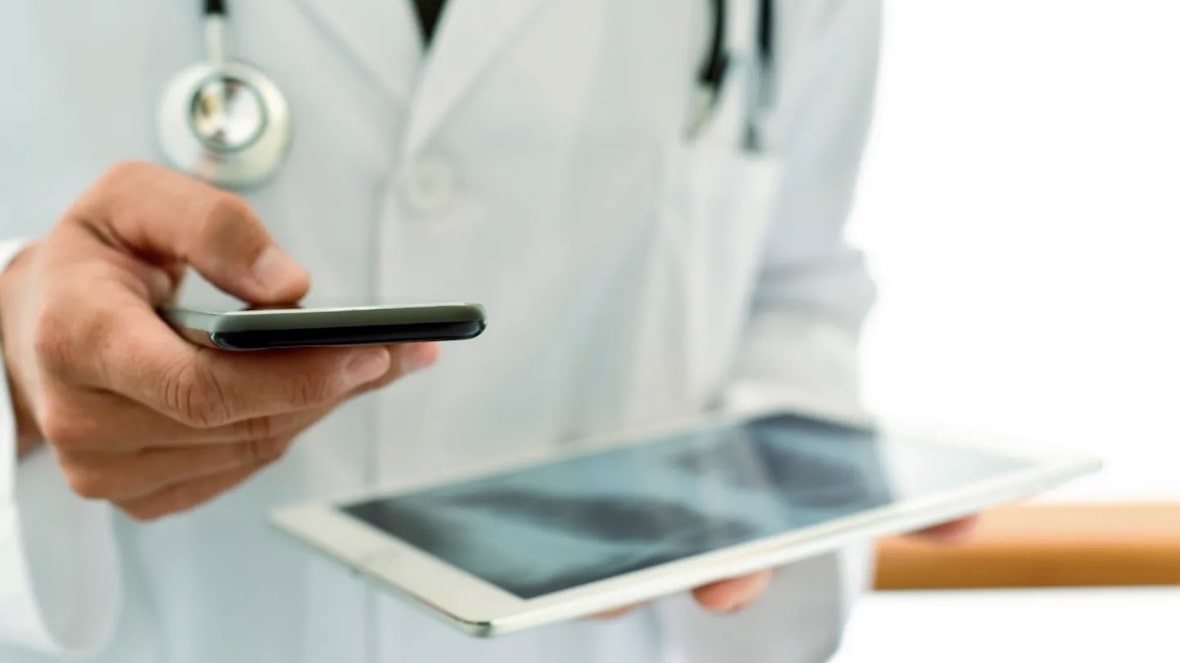What are your backgrounds, and how did you come to join Orion Health?
Ken: “I joined the NHS as a nurse back in the 1990s. I worked in surgery, predominantly in vascular surgery, then moved into management before being lured into technology through the training route. I worked for companies involved in the National Programme for IT and in the development of electronic patient records, and then I joined Orion Health about seven months ago.”
Rebecca: “My career is a lot shorter than Ken’s! I started in finance but then retrained as a nurse and qualified in 2010. I went into high dependency and renal nursing, but then I moved to the Scottish Borders and moved into substance misuse. I worked in prisons for a while, and then I joined a technology company, although I returned to nursing during the pandemic. Then the opportunity came up to work at Orion Health while studying for an MBA in global healthcare, and I joined two months ago.”
Why are shared care records good for nurses?
Ken: “When I think back to the early days of my career, one of the things that strikes me is that I looked after patients who had amputations, and they would stay on the ward for a long time, just because they were waiting for an assessment, or a limb fitting, or home adaptations.
“If there had been a shared care record, that everybody could just tap into, they could have been discharged much more quickly. I think that’s the most important thing about a shared care record for nurses; it means they spend less time chasing up information and more time delivering better care.”
Rebecca: “I had a very similar experience when I was working in prisons. There was a real disconnect between the prison system and community substance misuse teams. We’d end up trying to fax over information about prisoners who were due to be released. If we’d all had access to a shared care record, it would have been so beneficial. I also think it’s about having a more holistic view of the patient. Nurses are known for delivering holistic care, and it’s the shared care record that gives you that holistic view.”
Ken: “That’s right; but the important thing is that it organises all that information in a logical way. Information overload can be a real issue, so you need a system that enables you to find that one bit of information you need, while getting that whole picture of the patient.”
What developments are you hoping to support as clinical consultants?
Ken: “The integrated digital care record is a growing baby. As we roll out the different modules, we will need to look at how customers use it and where they would like to see changes and improvements. We already know there is a demand for real-time reporting tools. That’s tricky, because we need the data to develop them, so there’s a bit of a chicken and egg circle, but it’s something we’re working on.”
Rebecca: “I’d like to see a lot more sharing of best practice. I live in Scotland, where our shared care record has been in place for a long time. It would be great to see our Scottish customers sharing their experiences with some English customers who are just getting ready to deploy.
“I’d also like to see more nurses getting involved with technology. I see clinicians getting involved in forums and webinars and I don’t always see my nursing colleagues do the same. It would be great to see more nurses step up, because we do have a different perspective.”
Ken: “I never stood back! When I was nursing, I was always going to my managers and saying: ‘I want to do this course’ or: ‘I want to go to this event’! But I agree that nurses should be getting out there because our role is always evolving. As a nurse practitioner, you can be prescribing and making decisions, in a way that wasn’t possible when I started out; and having the right technology and the information it makes available is an important part of that.”
How will technology shape the future of healthcare?
Rebecca: “The future will be much more collaborative. As Ken’s just been saying, we’re already in a world where clinicians and nurses work as part of a multi-disciplinary team, but instead of having meetings, and people taking notes, data will be captured and shared in real time.
“There will also be more care planning and more care coordination. To do that, we’ll need more integration. We need to get information from mental health services, and social care, into our records. We are on the path, but we really need to keep going and to get all these systems joined up.”
Ken: “The other big change I see is access for patients, or citizens, because it isn’t the case that everybody is a patient, but everybody should be able to access information about healthcare. The NHS made a start during the pandemic, with an app to alert you if you had been in contact with someone with Covid, but it could go a lot further.
“If you are living with diabetes, for example, there are devices that you can wear that monitor your insulin levels. They could be combined with an alert system, that would send a signal to a clinician if there was a problem, so they could work with you to put it right. That is what excites me: the idea that technology will help citizens to make more informed choices.
Rebecca: “Technology will empower patients. Instead of waiting for a letter to come through the door with an appointment on it, patients will be able to see their health status and get advice about it. Also, as we’re coming out of the pandemic, people can see how stretched the NHS is, but also how valuable it is, so I think they will support a shift from reactive to proactive care.”
Ken: “The other thing that Covid showed us is that lots of things that we thought had to be done in a clinic can be done by video call. In fact, it’s often safer, because you don’t have to ask sick and elderly people to travel to a hospital or GP clinic just to come into contact with more people who might be ill.”
Rebecca: “I think it’s very interesting that NHS England has recognised that and is making a big push on virtual wards. Remote working is also fairer. If you live on a remote Scottish island, you’re looking at a very long journey to come into a big city for an appointment. Remote working gives more people access to care, and it’s technology that creates opportunities for remote working.”




